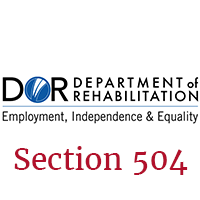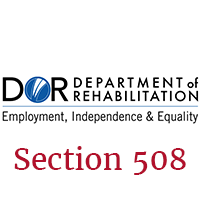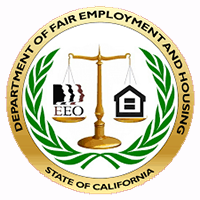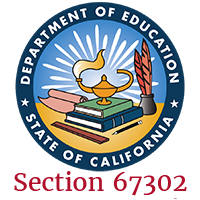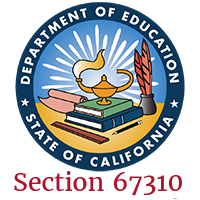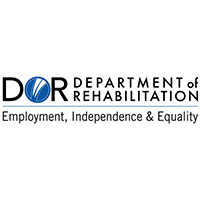Human Resources
How to Request an ADA Job Accommodation
Detailed Instructions for Initiating a Request for Workplace Accommodation
Fresno State is committed to providing reasonable accommodations to employees and applicants with disabilities or medical conditions in accordance with CSU Executive Order 1111, as well as state and federal laws. Upon request, the University will engage in an interactive process to determine appropriate accommodations that enable individuals to perform the essential functions of their job. The accommodation process begins once a request is submitted, and the CSU will work with the individual to identify the most suitable solutions based on the nature and extent of their disability or medical condition.
- Discuss Accommodation Needs
Employees should have a conversation with their supervisor or designated administrator to discuss any accommodation needs related to their disability or medical condition. Please note that this discussion should focus on the need for accommodation, not on the specific diagnosis. - Continue the ADA Process
Employees seeking accommodations based on a disability should continue the ADA accommodation process. - Initiate FML Leave if Applicable
If an employee is requesting a full, partial, or intermittent leave of absence due to illness or injury (for themselves or to care for a qualifying family member), they must first initiate the Family Medical Leave (FML) process.
For more information, review the ADA & FML Overview.
- Complete the Request Form
Employees formally begin the accommodation request by completing the Request for Reasonable Accommodation Form. - Provide Job Description to Medical Provider
- For Staff and MPPs: Employees should provide their medical provider with the job description, including a list of essential job functions. If the employee cannot find their job description, they can contact Human Resources at 559.278.2032 to request a copy.
- For Faculty: Employees should share with their medical provider the work duties and responsibilities
outlined in Article 20: Workload of the California Faculty Association (CFA) bargaining agreement.
- Complete the Form
Employees must fill out Section A of the Request for Reasonable Accommodation Form. This section includes personal details and the nature of the accommodation requested. - Submit the Form to the Medical Provider
Take the completed form and job description (or CFA workload details for faculty) to the physician or healthcare provider. Ask them to complete Section B: Certification from Physician/Health Care Provider, where the provider will describe the medical condition and recommend potential accommodations.
- Submit the Completed Form
Once the Request for Reasonable Accommodation Form is completed and Section B has been filled out by the physician, submit the form to Human Resources using one of the following secure methods:- Fax: Send to Human Resources at 559.278.4275.
- Mail: Mail to Human Resources, 5150 N. Maple Avenue, M/S JA41, Fresno, CA 93740.
- In Person: Drop off at the Human Resources office, Joyal Administration Building, Room 211.
- MOVEit: Submit via the MOVEit secure file transfer service. (Follow the instructions for secure submission.)
Important: Do not send confidential medical information via email to Human Resources for security reasons.
Confidentiality of Information
All medical information shared during the accommodation process is considered confidential.
This information will be solicited and received only by Human Resources, which will
maintain it in a separate, confidential file. The completed Request for Reasonable
Accommodation Form and any related documentation will not be stored in the employee’s
personnel records.
Only information regarding necessary restrictions and accommodations will be shared with managers and appropriate administrators involved in implementing accommodations. See also: CSU Privacy Notice
- ADA Coordinator Review
Once Human Resources receives the completed Request for Reasonable Accommodation Form, the ADA Coordinator will review the form to determine whether the employee has a disability as defined by the California Fair Employment and Housing Act (FEHA). In some cases, the ADA Coordinator may consult with University Counsel to assist with this determination. - Interactive Discussion
If the employee is determined to have a disability or medical condition, the ADA Coordinator will initiate an interactive discussion with the employee to explore the nature and extent of the employee's restrictions and identify potential accommodations. This discussion is a collaborative process, and the following participants may be involved:- Employee: Provides input on their condition and accommodation needs.
- ADA Coordinator: Assesses the employee’s needs and suggests potential accommodations.
- Appropriate Administrator: Discusses essential job functions and how accommodations can be implemented.
- Leave Coordinator: If applicable, assists with leave-related accommodations.
- Employees may also have a union representative participate in the discussion if requested.
- Objective of the Interactive Discussion
The goal of the discussion is to ensure that the employee can perform the essential functions of their job with reasonable accommodations, if needed. The University will take into account the employee’s preferences but will make the final decision on accommodations based on factors like cost, feasibility, and business needs.
It is the strong preference of the University to provide an accommodation that allows the employee to remain in their current position, rather than a transfer or reassignment.
- Decision on Accommodation
After the interactive discussion, the appropriate administrator and ADA Coordinator will inform the employee of the initial decision regarding the requested accommodation. This decision is typically communicated within 20 working days of receiving the completed Request for Reasonable Accommodation Form. If more time is needed, the employee will be informed of the delay. - Equipment Coordination
If the accommodation requires specific equipment, Human Resources will coordinate the procurement of equipment necessary for the employee to perform their essential job functions. Please note:- The equipment must be used in the course of official University business and will remain the property of the University.
- The equipment cannot be personal (e.g., eyeglasses, hearing aids) that the employee
can reasonably be expected to provide on their own.
- Facility Modifications
Should the requested accommodation involve physical barriers or the need for facilities modifications (e.g., ramps, door adjustments), Facilities Management, in collaboration with Human Resources and any other relevant departments, will review the request. If deemed reasonable, the request will be processed through the University’s normal service request procedures.
- Accommodation Evaluation
Once accommodations are implemented, both the employee and the appropriate administrator will assess how well the accommodations are working. This evaluation ensures that the accommodation is effective in enabling the employee to perform the essential functions of their job. - Requesting Modifications
If the accommodations are not effective or if the employee’s needs change, the employee may request modifications to the accommodation. The request for modifications should be submitted through the same process outlined for the initial accommodation request. - Reevaluation Process
If modifications are requested, the ADA Coordinator will review the request and may initiate another interactive discussion to assess the new needs. This may involve additional consultations with the employee, administrators, and medical professionals as needed to identify a more suitable accommodation. - Denied Requests
If an accommodation request is denied, the employee will be notified in writing by the appropriate administrator and ADA Coordinator. The denial letter will include information on the appeal process. The employee can appeal the decision by following the procedure outlined in the University’s ADA policy.
Important Notes for Accommodation Requests
Employees requesting ADA accommodations must submit appropriate medical documentation to verify the nature of their condition or disability. This ensures that accommodations are tailored to meet specific needs.
Confidentiality
All medical information shared during the accommodation process is kept confidential and handled in compliance with privacy regulations. It will only be disclosed to relevant parties, such as Human Resources and department administrators, on a need-to-know basis.
Interactive Process
The ADA accommodation process is collaborative, involving open discussions between the employee, the ADA Coordinator, and relevent administrators. This step is crucial for identifying accommodations that effectively meet the employee’s needs.
Accommodations May Include:
- Modifications to work schedules
- Changes to physical workspace (ergonomic adjustments, accessibility improvements, etc.)
- Assistive technology or equipment
- Alternative work arrangements (e.g., telework)
Additional Resources

